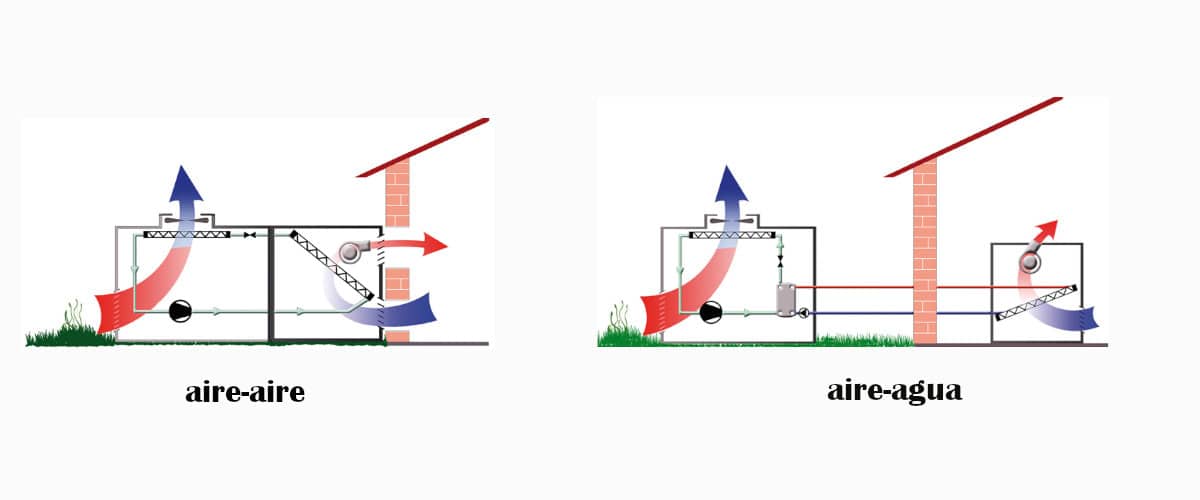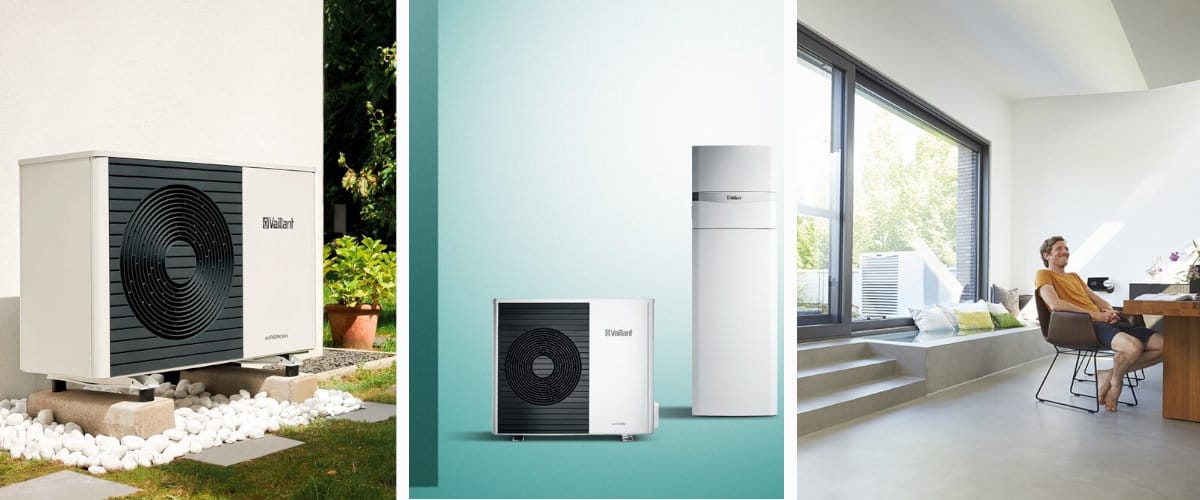
To keep a pleasant temperature in our home There are many alternatives on the market that we can turn to. And the ideal is to start thinking about them now, before the first cold starts. Because not all of them are equally efficient or sustainable, as shown by the OCU study that places heat pumps as the first option.
Both the classic gas boilers and the aerothermal systems have the same objective: to keep our homes warm during the winter. They have, however, different ways of doing it. The electric heat pumps They take advantage of the thermal energy of the outside air, generating heat and cold in a way that respects the environment. They allow us to decarbonise heating and at the same time save money.
What is a heat pump?
A heat pump is a device capable of transferring heat from a fluid at low temperature to another at higher temperature. In this way, it is possible to transfer thermal energy efficiently from one place to another, instead of generating heat directly.
How It Works
This circuit is known as the refrigeration circuit and is made up of an evaporator, a compressor, a condenser and an expansion valve. During operation, heat is first extracted from the outside air through the evaporator, to then raise its pressure, condense it and expand it.
The circuit allows to control the temperature of the air but also that of the water thanks to an indoor unit -a heat exchanger- that will be in charge of connecting the previously described system and all the radiator or underfloor heating units, as well as the hot water circuit. home health.
Types of heat pump
When it comes to taking advantage of thermal energy for the air conditioning of our home, we have at our disposal different types of heat pumps depending on its operation and the systems used for heat exchange.
The most common are the air-air system, by which the heat/cold to heat/cool the interior air of the house is obtained from the exterior air and which makes use of splits or multisplits. And the air-water system that in heating mode takes the heat from the outside air and transfers it to a water circuit to distribute it to terminal units such as air handling units, radiators or underfloor heating, which transfer the heat from the water to the interior environment of the space to be heated .
Advantages of the heat pump
Heat pumps are a efficient air conditioning system that uses a free resource to make our home more comfortable. Silent, safe and economical? In addition to these other advantages that we briefly develop below:
- High performance: At least 75% of the energy consumed comes from a renewable energy source and only 25% comes from electrical energy. It is thus an efficient system that allows a long-term savings margin of up to 25%.
- It is a renewable energy. This is stated in the CTE (Technical Building Code). They reduce the consumption of fossil fuels, protect resources and minimize harmful CO2 emissions.
- does not produce combustion. It is a safe system that does not produce gases, fumes or residues, which also reduces the need for maintenance and cleaning.
- They depend only on the electricity supply. The entire house can run exclusively on electricity, without the need to contract gas or fuel supplies.
Disadvantages
Do heat pumps have disadvantages? They have them and although they are small compared to the advantages, they can be a problem initially, at the time of installation. Discover them!
- Necessary install an outdoor unit, which will take up space and can affect the aesthetics of the facade
- Its initial cost is high. You may have to hire a higher power from your electricity supplier, which will imply an increase in the cost of the fixed fee. Although on balance and in the long run you will end up saving money.
- Its optimal level of efficiency will be in low temperature radiation systems or radiant floors, as well as in air heating.

